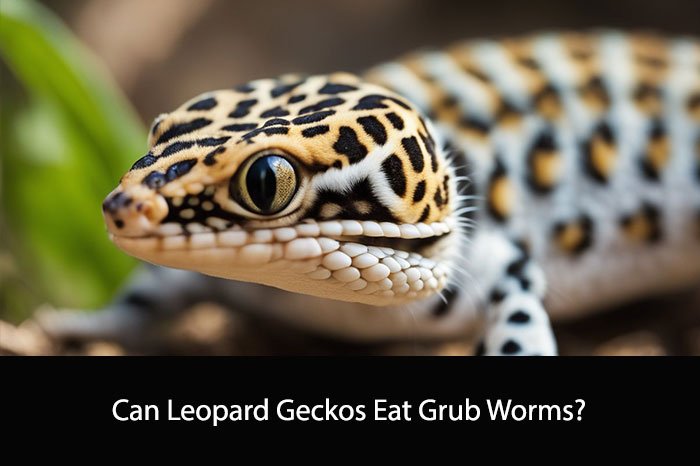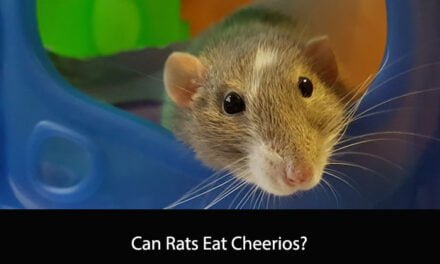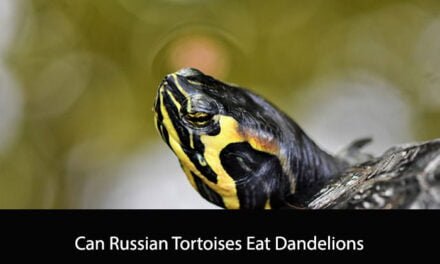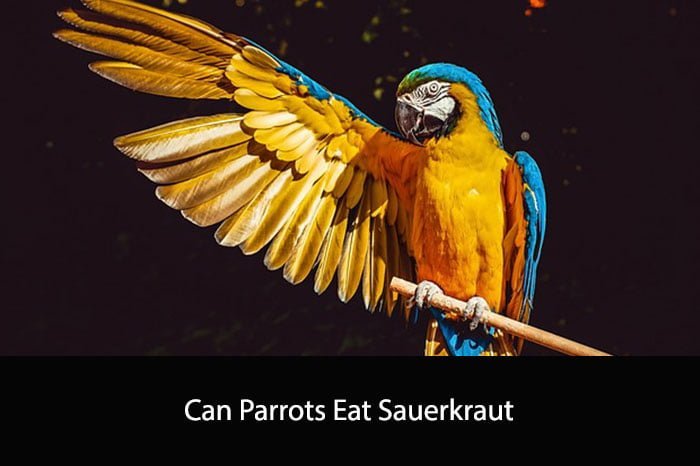Leopard geckos are popular pets that require a balanced diet to maintain their health and wellbeing. While they primarily feed on insects, there is often confusion about what types of insects are safe for them to consume. One common question that arises is whether leopard geckos can eat grub worms.
Grub worms, also known as beetle larvae, are a common food source for many insect-eating reptiles. However, when it comes to leopard geckos, the answer is not so straightforward. Some experts recommend against feeding grub worms to leopard geckos, while others believe they can be a nutritious addition to their diet.
In this article, we will explore the topic of whether leopard geckos can eat grub worms. We will examine the nutritional value of grub worms, the potential risks associated with feeding them to leopard geckos, and provide expert advice on how to safely incorporate them into their diet if appropriate.
Leopard Gecko Dietary Basics
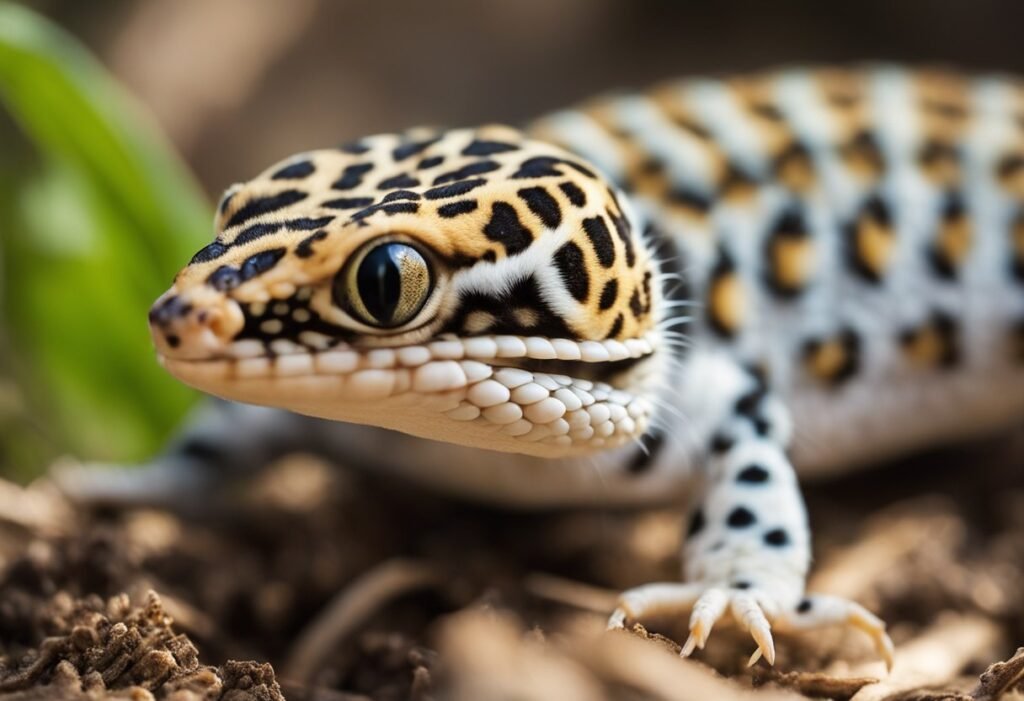
As responsible pet owners, we must ensure that our leopard geckos are getting the right nutrition to maintain their health and longevity. In this section, we will cover the basic dietary requirements of leopard geckos.
Nutritional Requirements
Leopard geckos are insectivores, which means that they primarily eat insects. In captivity, they can be fed a variety of insects, including crickets, mealworms, and superworms. It is important to note that leopard geckos require a diet that is high in protein and low in fat.
In addition to insects, leopard geckos also require calcium and vitamin D3 to maintain healthy bones and prevent metabolic bone disease. Calcium can be provided in the form of a calcium supplement, while vitamin D3 is obtained through exposure to UVB lighting.
Natural Diet in the Wild
In the wild, leopard geckos primarily feed on insects such as crickets, beetles, and grasshoppers. They also occasionally eat small lizards and rodents. It is important to note that their diet in the wild may differ from their diet in captivity, as they have access to a wider variety of food sources.
While it may be tempting to offer your leopard gecko other types of food, such as fruit or vegetables, it is important to remember that they are strict carnivores and cannot digest plant matter. Offering inappropriate foods can lead to digestive issues and other health problems.
In conclusion, leopard geckos require a diet that is high in protein and low in fat, with calcium and vitamin D3 supplementation. By providing them with a proper diet, we can ensure that they live long and healthy lives.
Understanding Grub Worms
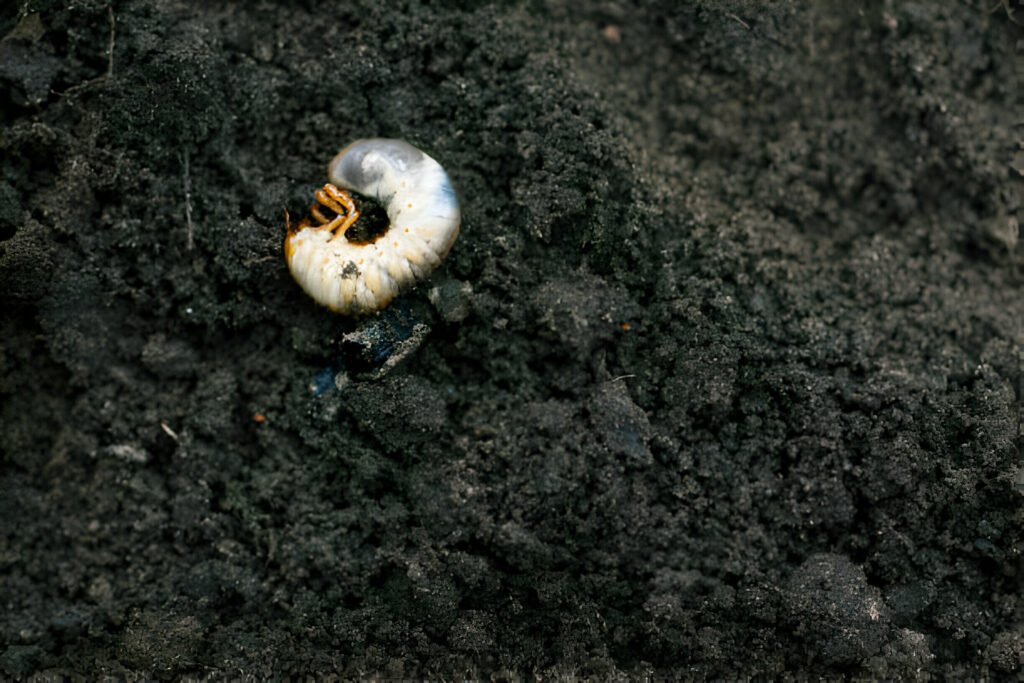
Grub worms are a popular food choice for many reptiles, including leopard geckos. They are the larvae of beetles and are commonly found in gardens and compost piles. In this section, we will discuss the different species of grub worms and their nutritional content.
Grub Worm Species
There are many species of grub worms, but the most commonly used for feeding reptiles are mealworms, superworms, and waxworms. Mealworms are the most popular, as they are widely available and easy to breed. Superworms are larger and have a higher fat content, making them a good occasional treat. Waxworms are high in fat and should only be fed sparingly.
Nutritional Content
Grub worms are a good source of protein and fat for leopard geckos. Mealworms contain around 20% protein and 13% fat, while superworms have about 20% protein and 18% fat. Waxworms have the highest fat content, with around 22% protein and 38% fat.
It’s important to note that while grub worms can provide important nutrients for your leopard gecko, they should not be the only food source. A varied diet that includes other insects and occasional treats like fruits and vegetables is necessary for a healthy and balanced diet.
In conclusion, grub worms are a nutritious food source for leopard geckos, but it’s important to choose the right species and feed them in moderation as part of a varied diet.
Safety and Risks of Feeding Grub Worms
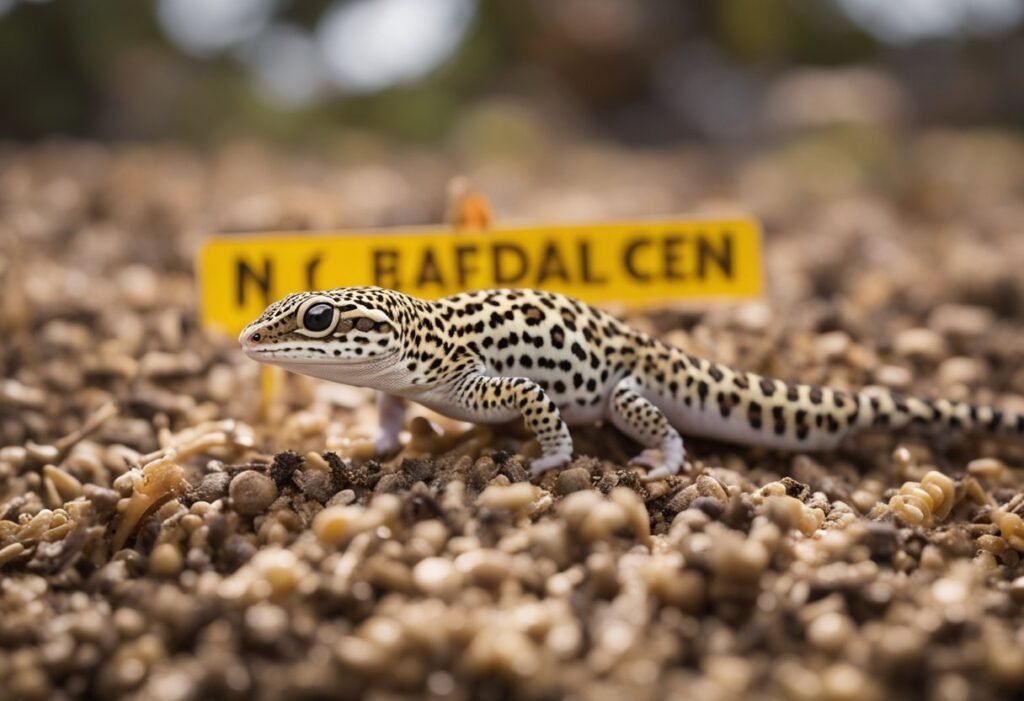
When considering feeding leopard geckos, it is important to be aware of the potential hazards associated with certain food items. Grub worms are a popular choice for many reptile owners, but they do come with some risks.
Potential Hazards
One of the main concerns with feeding grub worms is the risk of impaction. These worms have tough exoskeletons that can be difficult for leopard geckos to digest. If they eat too many at once, or if the worms are too large, they can become impacted in the digestive tract and cause serious health issues.
Another hazard to consider is the risk of parasites. Grub worms can carry parasites that can be harmful to leopard geckos. It is important to source your worms from a reputable supplier and ensure they are properly cleaned before feeding them to your gecko.
Allergy and Digestion Concerns
In addition to the potential hazards, some leopard geckos may have allergy or digestion concerns when it comes to feeding grub worms. Some geckos may have an allergic reaction to the exoskeleton of the worms, which can cause skin irritation or other health issues. Additionally, some geckos may have difficulty digesting the worms, leading to stomach upset or other digestive issues.
To minimize these risks, it is important to introduce grub worms slowly and in small quantities. Watch your gecko closely for any signs of digestive distress or allergic reaction. If you notice any issues, stop feeding the worms and consult with a veterinarian.
Overall, while grub worms can be a nutritious and tasty food item for leopard geckos, it is important to be aware of the potential risks and take steps to minimize them. By sourcing your worms from a reputable supplier, introducing them slowly and in small quantities, and monitoring your gecko closely, you can help ensure their safety and well-being.
Feeding Grub Worms to Leopard Geckos
When it comes to feeding leopard geckos, there are several options available. One of the options is feeding them grub worms. Grub worms are high in protein and are a great source of nutrition for leopard geckos. In this section, we will discuss how to feed grub worms to leopard geckos.
Preparation and Portion Size
Before feeding grub worms to leopard geckos, it is important to prepare them properly. Grub worms should be purchased from a reputable source and should be gut-loaded with nutritious foods. This means that the grub worms should be fed a nutritious diet before being fed to leopard geckos. Additionally, it is important to ensure that the grub worms are the appropriate size for the leopard gecko. The size of the grub worm should not be larger than the width of the gecko’s head.
When it comes to portion size, it is recommended to feed leopard geckos 2-3 grub worms per feeding. This will provide them with the necessary nutrition without overfeeding them. It is important to monitor the gecko’s weight and adjust the portion size accordingly.
Frequency and Feeding Technique
Leopard geckos should be fed 2-3 times per week. When feeding grub worms, it is important to use feeding tongs to avoid accidentally biting the gecko. The grub worms should be placed in a shallow dish and offered to the gecko. It is important to monitor the gecko while it is feeding to ensure that it is eating properly.
In conclusion, feeding grub worms to leopard geckos can be a great source of nutrition for them. By following the proper preparation and portion size guidelines, as well as the appropriate frequency and feeding technique, leopard geckos can thrive on a diet that includes grub worms.
Alternatives to Grub Worms
When it comes to feeding leopard geckos, variety is key. While grub worms are a popular option, it’s important to offer other prey items to ensure a balanced diet. Here are some alternatives to consider:
Commercial Diets
There are several commercially available diets that are specifically formulated for leopard geckos. These diets typically come in the form of pellets or powders that can be mixed with water to create a paste. Some popular options include Repashy Superfoods Crested Gecko Diet and Pangea Fruit Mix Complete Gecko Diet. These diets are convenient and can provide a balanced mix of nutrients. However, it’s important to note that some geckos may not take to these diets and may require additional coaxing.
Other Live Prey Options
In addition to grub worms, there are several other live prey options that can be offered to leopard geckos. Some good options include crickets, mealworms, and dubia roaches. These prey items can be purchased at most pet stores and are relatively easy to care for. It’s important to ensure that any live prey items offered are appropriately sized for your gecko and are gut-loaded (fed a nutritious diet) prior to feeding.
Overall, there are several alternatives to grub worms that can be offered to leopard geckos. By providing a varied diet, you can help ensure that your gecko is getting all of the nutrients it needs to thrive.
Monitoring Your Leopard Gecko’s Health
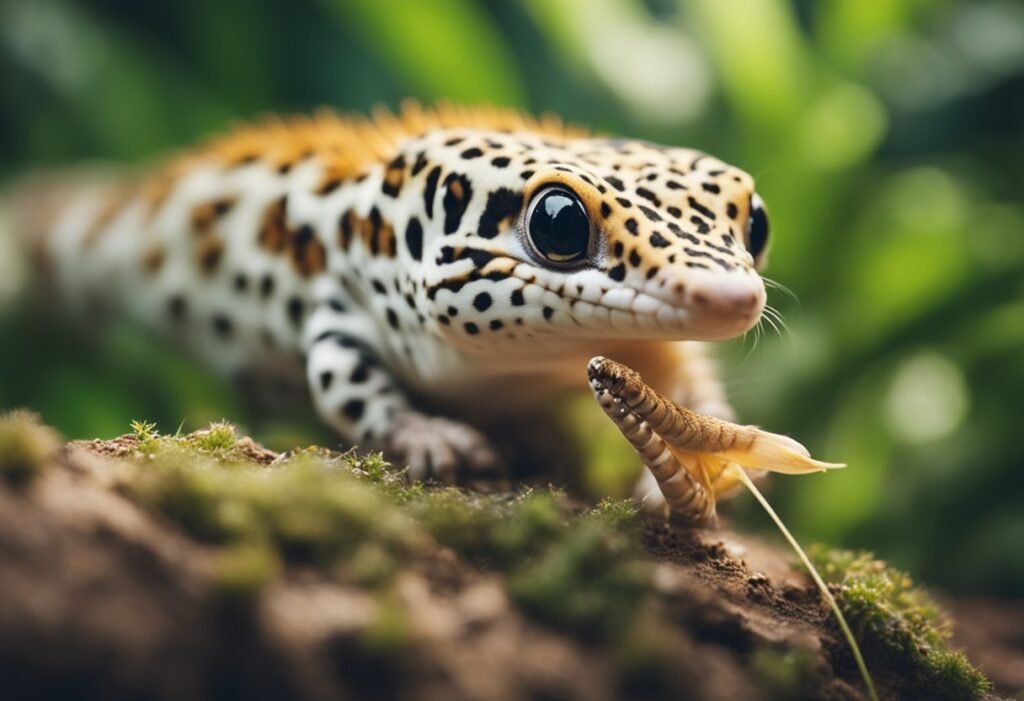
As responsible pet owners, it is important for us to monitor our leopard gecko’s health regularly. This includes observing their behavior, appetite, and physical appearance. In this section, we will discuss some signs of nutritional balance and when to consult a veterinarian.
Signs of Nutritional Balance
Leopard geckos require a balanced diet to maintain good health. Signs of a well-nourished gecko include a healthy weight, clear eyes, and smooth skin. They should also have a good appetite and be active during their waking hours.
On the other hand, signs of malnutrition include weight loss, lethargy, and dull or discolored skin. If you notice any of these signs, it may be an indication that your gecko’s diet needs adjustment.
When to Consult a Veterinarian
If you notice any concerning changes in your leopard gecko’s behavior or physical appearance, it is important to consult a veterinarian. They can help diagnose any underlying health issues and recommend appropriate treatment.
Some signs that may warrant a visit to the vet include loss of appetite, diarrhea, difficulty shedding, or any unusual lumps or bumps on the gecko’s body. It is always better to err on the side of caution and seek professional advice if you are unsure about your gecko’s health.
By monitoring our leopard gecko’s health regularly and seeking veterinary care when necessary, we can ensure that our pets live happy and healthy lives.
Frequently Asked Questions
What types of worms are safe for leopard geckos to consume?
Leopard geckos can consume a variety of worms, including mealworms, wax worms, calci worms, and earthworms. However, it is important to ensure that the worms are appropriate in size and that they are gut-loaded and dusted with calcium and vitamin supplements before feeding.
Are mealworms a suitable dietary option for leopard geckos?
Mealworms are a commonly fed prey item for leopard geckos, but they should not be the sole component of their diet. Mealworms are high in fat and low in calcium, so they should be fed in moderation and supplemented with other types of prey.
Can leopard geckos be fed wax worms without health risks?
Wax worms are a high-fat prey item and should be fed in moderation. Overfeeding wax worms can lead to obesity and other health issues in leopard geckos. It is recommended to only feed wax worms as an occasional treat.
Is it safe to include calci worms in a leopard gecko’s diet?
Calci worms are a nutritious prey item for leopard geckos and are high in calcium. They are safe to include in a leopard gecko’s diet as long as they are appropriately sized and supplemented with calcium and vitamin supplements.
Are there any risks associated with feeding leopard geckos earthworms?
Earthworms are a safe and nutritious prey item for leopard geckos. However, they should only be fed occasionally as they are high in moisture and can lead to digestive issues if overfed.
What should be considered when feeding grub worms to leopard geckos?
Grub worms can be fed to leopard geckos as a source of protein, but they should be fed in moderation and appropriately sized. It is important to ensure that the grub worms are from a reputable source and are not contaminated with pesticides or other harmful substances. Additionally, they should be gut-loaded and dusted with calcium and vitamin supplements before feeding.

